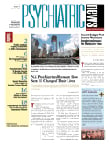Group and individual health insurance providers may have less stringent regulations to follow regarding the process by which they must consider patient appeals with the release of an amendment to interim final rules first introduced in July 2010.
Issued by the departments of Health and Human Services, Labor, and Treasury last month, the newly proposed amendments address a year's worth of concerns expressed by representatives of both insurers and the insured.
The amendments attempt to reconcile opposing feedback on internal insurance claims and appeals, as well as the external review process for claims. In what can be seen as a boon to health insurance providers, plans and issuers now have a 72-hour window in which to make a benefit determination related to any urgent care claims. The July 2010 regulations had called for a 24-hour response to such claims.
Similarly, the new amendments add several exceptions to the component of the July 2010 rule that would permit claimants to seek outside review immediately if an insurer does not "strictly adhere" to the internal claims and appeals processes outlined in the earlier regulations. Other internal claims and appeals process amendments relate to the provision of diagnosis and treatment codes in notices of adverse benefit determination and how to provide insurance information in "a culturally and linguistically appropriate manner."
In regard to the external review of patient claims and appeals, the amendments address state compliance with the new regulations, the types of claims eligible for review, and the legality of determinations made by independent review organizations (IROs).
States will now have until the end of the year to amend their external review processes to meet or exceed the minimum consumer protections provided for under federal law. The earlier rule had called for state conformity to federal standards by July 1.
The amendment also narrows the scope of claims eligible for external review to those that involve medical judgment or a rescission of coverage. According to the departments drafting the amendment, the broader scope of the July 2010 rule has been suspended to give the marketplace time to adjust to providing external review, as well as afford the agencies time to evaluate the capacity of IROs to handle external reviews.
Lastly, the amendment clarifies the requirement that external review decisions be binding. Specifically, the amendment requires group and individual insurers to "provide benefits ... pursuant to the final external review decision without delay, regardless of whether the plan or issuer intends to seek judicial review of the external review decision and unless or until there is a judicial decision otherwise."

